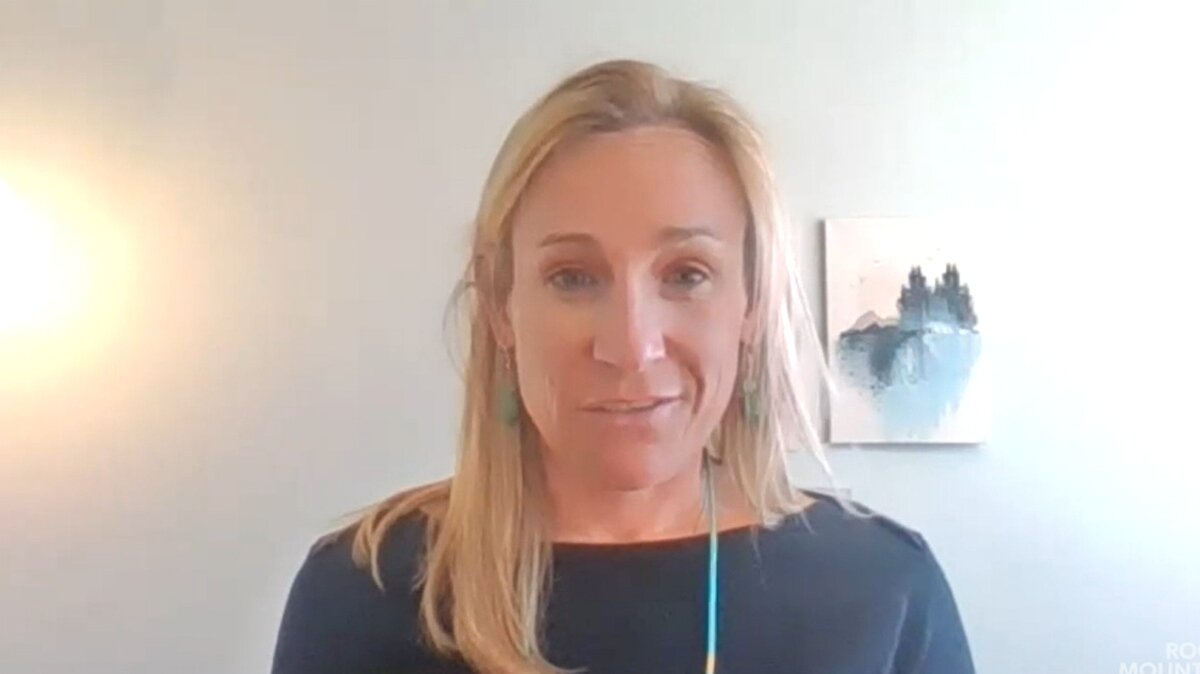Principal apologizes for threatening text, commits to making changes

DURANGO, Colo. — Two weeks ago, Rocky Mountain PBS brought you the story of Daisy in Durango, Colorado. When Daisy lost her job because of the pandemic, she couldn't apply for unemployment benefits due to her immigration status. She could no longer pay the internet bill, so her son Alex didn't have access to online class.
Then she got a text from the school: “Daisy,” the text read in Spanish, “if Alex does not sign in on Monday, we will call Child Protective Services for educational abandonment."
Daisy said the text left her feeling upset and powerless.
“We would never threaten to call CPS, unless we feel that it truly is an issue of neglect or abuse,” said Marie Voss-Patterson, Principal at Park Elementary, the school Daisy’s son attends.
After we published Daisy's story, Voss-Patterson responded to follow-up questions from Rocky Mountain PBS journalist Sonia Gutierrez and Benjamin Waddell, who helped produce the story, by saying the situation with Daisy and her son was “incredibly humbling as our intent was good, but the impact was harmful.”
“We apologize to the mother, her family, and broader Latinx community for the harm we caused,” Voss-Patterson continued. “We are committed to doing better moving forward.”
You can read Voss-Patteron’s full response here.

According to Voss-Patterson, Park Elementary plans to hire a bilingual parent liaison this spring to improve communication between her staff and the Latinx community. In addition, the school district stated they will hire a permanent bilingual advocate to facilitate communication between its schools and the broader immigrant community.
The school is also planning a "Latinx parents night" on April 12 in conjunction with Compañeros, an immigrant resource center based in Durango. Parents will be able to give the school feedback on how it can improve its outreach to immigrant and Spanish-speaking families.
Voss-Patterson added: “This situation has shed light upon the continued need to support our marginalized communities within our education system. It has opened a space for larger, pertinent conversations to be had about how best to support multilingual families.”
Latinx students make up 27% of Park’s student body, and 22% of all students district-wide. Yet according to the latest numbers provided by Durango School District 9-R, as of 2018 just 8% of the district’s staff identified as Hispanic or Latino. Only one administrator and just 6.7% of teachers identified as Latinx.
One last figure to note: Zero psychologists and guidance counselors in the district identify as Hispanic or Latino. In contrast, La Plata County, where the school district is located, has a Latino population of nearly 13%.
Local activist Wendolyne Omaña has been working with immigrants in the area for over a decade. After the story about Daisy receiving threatening text messages was published, Omaña, along with several other Latinx community leaders, met with Voss-Patterson to remind the district that Daisy’s case represents a long history of aggressions against Latinx parents and students.
Omaña thinks the changes sparked by the story are too little, too late.
“It’s very depleting for people of color to see the continuous misuse of white privilege as well as white people taking offense at minor threats to their positions of power,” she said. “Their pretending of understanding our culture is and has been the reason many members of the Latinx community developed anxiety, depression or attempted suicide.”
According to Omaña, immigrant mothers at Park and elsewhere in the district often feel disconnected from the educational experience of their children.
“I keep hearing stories about Park,” she said. “Immigrants enroll their children there because they were advised to join that school to feel more comfortable with their understanding of the Spanish language, but that has not been the case."